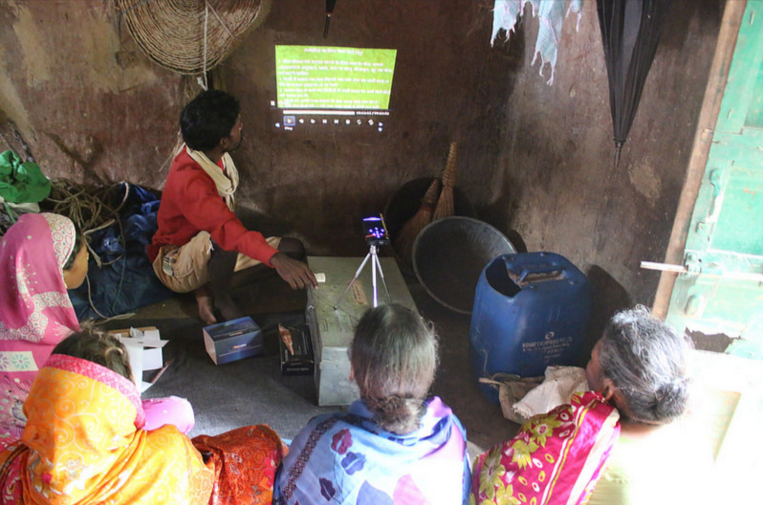To learn more about Digital Green’s AI-powered platform and how it impacts small-scale farmers in India, Ethiopia, Kenya, Nigeria and Brazil, we encourage you to sign up for our newsletter.
Man on a mission

Gomeshri Munda of Ulatu village, Namkum block, Ranchi district, Jharkhand, a seemingly ordinary small farmer, single-handedly mobilized the women of his village in 2007 to form self-help groups and save at least INR 5 of their hard-earned money instead of wasting it on ‘hadia’, locally brewed alcoholic beverage. The groups are functional to date. Gomeshri went on to get associated with the Jharkhand State Livelihood Promotion Society (JSLPS) as an Ajeevika Krishak Mitra (community level agriculture extension agent).

Gomeshri was trained on providing extension services and disseminating information on preparing organic compost, fertilizers and pesticides, and other community managed sustainable agricultural practices by the JSLPS team.
Like the other AKMs, Gomeshri was trained on disseminating best practices through videos to self-help groups, when JSLPS collaborated with Digital Green to implement the video-enabled peer to peer learning approach. His disseminations have gone down well with the villagers. Through the videos, he is able to explain best practices to the women easier and faster.
Excessive use of chemical pesticides and fertilizers had eroded the fertility of the soil in Ulatu village. With the community adopting practices like preparing and using organic compost and pesticides, the land’s fertility is slowly getting restored. Over the next five years, Gomeshri wants to completely eliminate the use of commercially sold chemical pesticides and fertilizers in his village. He dreams of his community steadily progressing on the path of social and economic empowerment.